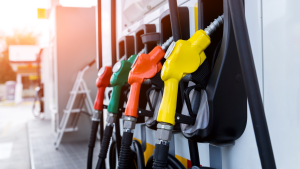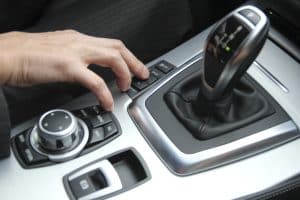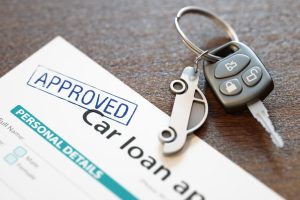
- The Savvy Promise
At Savvy, our mission is to empower you to make informed financial choices. While we maintain stringent editorial standards, this article may include mentions of products offered by our partners. Here’s how we generate income.
What is a car lease?
A car lease is a contractual agreement between a leasing company or dealership and an individual or business that allows the leaseholder to use a vehicle for a specified period, typically two to four years, in exchange for monthly payments. Unlike a traditional car loan where the borrower owns the vehicle outright after the loan term, the leaseholder only has the right to use the vehicle for the duration of the lease term.
At the end of the lease term, the leaseholder has several options: they can return the vehicle, purchase the vehicle at a predetermined residual value, or in some cases, trade it in for a new lease. Car leases often require a down payment at the beginning of the lease term, along with other fees and taxes. Leasing can be a viable option for individuals or businesses looking for lower monthly payments and the flexibility to drive newer vehicles more frequently.
What are the different car lease options?
In Australia, there are generally three types of car leases that may be available depending on your circumstances:
Novated lease
A novated lease is a three-way agreement between an employer, an employee, and a leasing company. In this arrangement, the employee leases the vehicle, but the lease payments are deducted from their pre-tax salary by the employer. This can result in potential tax benefits for the employee, as they effectively pay for the lease using pre-tax income. The employer takes on the responsibility of making the lease payments and managing the lease, while the employee gets to use the vehicle for both work and personal use. However, if the employee changes jobs, they may be responsible for the lease payments themselves.
Finance lease
A finance lease, also known as a capital lease, is a type of lease where the leaseholder agrees to make fixed monthly payments to use the vehicle for a predetermined period. At the end of the lease term, the leaseholder typically has the option to purchase the vehicle for a predetermined residual value. Unlike a novated lease, with a financial lease the leaseholder is responsible for making the lease payments with after-tax income.
Operating lease
An operating lease is a short-term lease typically used for commercial purposes. In an operating lease, the leasing company retains ownership of the vehicle, and the leaseholder pays for the use of the vehicle over a specified period. Operating leases often have lower monthly payments compared to finance leases because they cover only a portion of the vehicle's useful life. At the end of the lease term, the vehicle is returned to the leasing company. Operating leases are popular for businesses that want to use vehicles without the long-term commitment or ownership responsibilities associated with purchasing.
How does a car loan work?
If you want to buy a car but can’t buy one outright, you will generally need to explore finance. A car loan allows individuals to purchase a vehicle by borrowing money from a lender and repaying it over time with interest. Unlike a car lease, with a car loan you own the car from the start of the term. You can typically apply through banks, credit unions or online lenders, who will assess your creditworthiness and financial stability to determine loan eligibility and terms, including the loan amount, interest rate and repayment period. Once approved, borrowers enter into a loan agreement specifying these terms.
The loan is repaid along with interest in fixed monthly payments over a set term, usually lasting 2 to 7 years. With each payment, you chip away at the loan amount and build equity in the car. This means you gradually own a larger portion of the car until the loan is paid off entirely. However, if you fail to make payments, the lender may repossess the vehicle.
Pros and cons of a car lease
Pros:
- Lower monthly costs: lease payments are typically lower than loan payments because you're only paying for the vehicle's depreciation during the lease term.
- Drive a new car every few years: leases are ideal if you prefer the excitement of having the latest car models with new features and technology. You can upgrade to a new car every few years at the end of the lease term.
- Flexible terms: leases often come with flexible terms, allowing you to choose the lease duration and mileage options that suit your needs.
- Manufacturer warranty coverage: lease terms usually coincide with the manufacturer's warranty period, so you're covered for major repairs during the lease.
Cons:
- No ownership: at the end of the lease, you won't own the car unless you choose to buy it out. You'll simply return it and walk away. There's no residual value to build equity.
- Mileage limitations: leases often come with set mileage restrictions. Going over these limits can result in additional charges.
- Customisation limits: lease agreements typically prohibit significant modifications to the vehicle, limiting your ability to customise it to your liking.
- Potential wear and tear charges: you might be responsible for excess wear and tear beyond normal use at the end of the lease.
Pros and cons of a car loan
Pros:
- Ownership: buying a car through a loan allows you to build equity in the car and eventually own it outright. Over time, as you make your monthly payments, you'll own a greater portion of the car.
- Customisation freedom: when you own a car, you can personalise it to your taste without restrictions, whether it's adding a sound system, window tinting or installing a roof rack.
- No mileage limitations: you can drive as much as you want without worrying about exceeding mileage limits and incurring extra fees.
- Potential for resale value: if you want to change your car, you can sell it privately or trade it in for another vehicle. This can help offset some of the overall cost of ownership.
Cons:
- Higher upfront costs: you might need a larger down payment for a car loan compared to leasing.
- Loan interest: you'll pay interest on the loan amount over the repayment term, which adds to the overall cost of the car.
- Long-term ownership costs: factor in maintenance, insurance and potential repairs alongside the loan payments. These are ongoing expenses that come with car ownership.
- Depreciation: cars depreciate in value over time, which is a cost you have to consider as the owner.
Should I lease or buy a car?
Deciding whether to lease or buy a car depends on individual circumstances, preferences and financial goals. Leasing can be ideal if you:
- Prefer new cars: leasing allows you to drive a new car every few years, often with the latest features and technology.
- Want lower upfront costs: leasing typically requires a lower upfront payment or sometimes no down payment at all.
- Have moderate driving habits: if you don't drive excessively and can stay within the mileage limits specified in the lease agreement, leasing can be a cost-effective option.
Meanwhile, car loans are a good choice if you:
- Prioritise ownership: buying a car means you'll eventually own it outright, providing a sense of ownership and the freedom to use the car as you wish.
- Want to customise your car: you can customise your car to your liking, whether it's through aesthetic modifications, performance upgrades or personalised features.
- Know you’ll want to use the car long term: if you anticipate using the car for an extended period, such as several years or more, buying may be the more cost-effective option.
If you are looking for a car loan or lease, turn to Savvy. Our experienced car loan brokers will work closely with you to help you find a solution that fits your needs. Get started with a free quote today!
Did you find this page helpful?
This guide provides general information and does not consider your individual needs, finances or objectives. We do not make any recommendation or suggestion about which product is best for you based on your specific situation and we do not compare all companies in the market, or all products offered by all companies. It’s always important to consider whether professional financial, legal or taxation advice is appropriate for you before choosing or purchasing a financial product.
The content on our website is produced by experts in the field of finance and reviewed as part of our editorial guidelines. We endeavour to keep all information across our site updated with accurate information.
Approval for car loans is always subject to our lender’s terms, conditions and qualification criteria. Lenders will undertake a credit check in line with responsible lending obligations to help determine whether you’re in a position to take on the loan you’re applying for.
The interest rate, comparison rate, fees and monthly repayments will depend on factors specific to your profile, such as your financial situation, as well others, such as the loan’s size and your chosen repayment term. Costs such as broker fees, redraw fees or early repayment fees, and cost savings such as fee waivers, aren’t included in the comparison rate but may influence the cost of the loan. Different terms, fees or other loan amounts may result in a different comparison rate.









